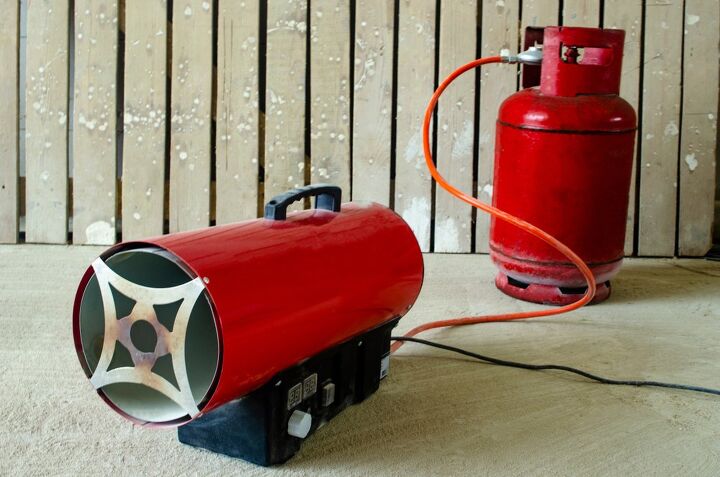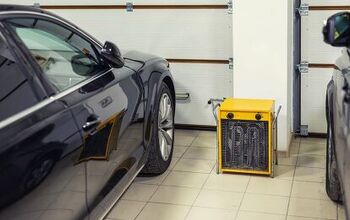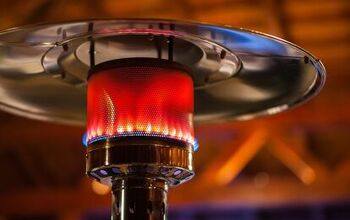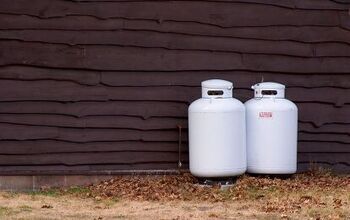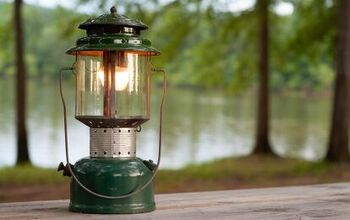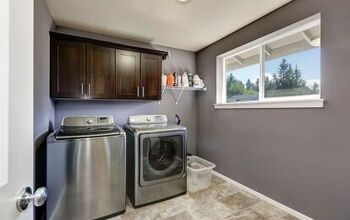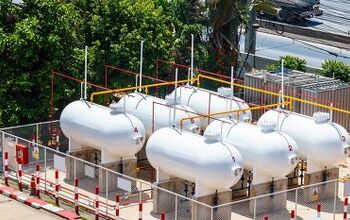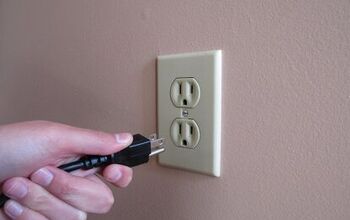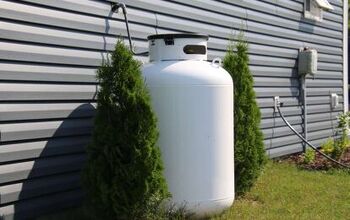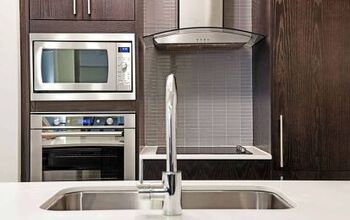Can You Use A Propane Heater In A Garage? (Find Out Now!)

No longer just for cars, garages have become multi-faceted in their usage. They are part storage, part workshop, part exercise room, and the list goes on.
They’re not always well insulated, though. And using a garage in the winter months can be unpleasant. Thankfully, some wonderful person invented space heaters, which are an efficient and effective way to heat drafty garages.
Propane heaters are safe to use in a garage, but some precautions are necessary. Be sure to use an indoor-safe propane heater, which has an oxygen depletion sensor. This automatically shuts off the heater if oxygen in the room reaches unsafe levels. Always make sure the garage is properly ventilated and never leave the heater unattended while it’s in use.
Do You Need a Heating and Cooling Contractor?
Get free, zero-commitment quotes from pro contractors near you.

Indoor vs. Outdoor Propane Heaters
The garage is technically outside, so an outdoor propane heater should be okay, right? Such is not the case, friends. The difference between indoor and outdoor propane heaters is how they release smoke.
Propane Heaters and Carbon Monoxide
Burning propane causes carbon monoxide emissions. The odorless, tasteless, invisible gas is deathly at high volumes. It also takes time to accumulate, so you may not realize how much there is unless you have a carbon monoxide detector.
Usually, carbon monoxide is swept away by air currents. Outdoor-only propane heaters don’t need anything special to get rid of the carbon monoxide emission because ventilation takes care of that.
But indoor-only propane heaters are a different story. Because they are meant for use in an enclosed space, there’s nowhere for the carbon monoxide to go. To combat this, indoor-only heaters come equipped with an oxygen depletion sensor (ODS). This safety feature automatically shuts off the heater when it recognizes that the oxygen in the room has reached unsafe levels.
Indoor-Only in a Garage
Indoor-only propane heaters are safe to use in a garage as well as in other enclosed spaces. Because garages are semi-enclosed spaces, you must use an indoor-only propane heater. They aren’t ventilated enough for an outdoor heater.
For reference, outdoor propane heaters are used at worksites and on the sidelines of football games. They produce heat at such high powers and rely on natural air currents to whisk away carbon monoxide. Even opening windows won’t vent the carbon monoxide enough for use in a garage.
Vented vs. Vent-Free Indoor Propane Heaters
Indoor propane heaters have two different ways of venting their combustion exhaust, which includes carbon monoxide. Vented propane heaters vent out the back into a chimney or pipe that takes the exhaust outside. Vent-free propane heaters vent back into the room.
Because space heaters are meant to be portable, most will be vent-free. These heaters are typically clean-burning and energy-efficient. But because they don’t take the combustion exhaust outside, they come equipped with an ODS to keep you safe.
If you’re looking for occasional use of a propane heater in your garage, you can get away with a vent-free propane heater. Just make sure you take proper safety precautions.
Propane Heater Safety Tips for Garages
Before switching on your propane heater and getting comfy in your garage, read the manufacturer’s instructions. Be aware of the heater’s position, size, and safety features
Heater Position
Even though vent-free indoor propane heaters have the ODS safety feature, it’s still a good idea to vent the garage. Open windows or keep the garage door ajar while using the propane heater. Position the unit so the heat is directed where you need it and the back faces the ventilated area.
Make sure the heater is on a flat surface away from all flammable materials. Place it where there’s the least amount of foot traffic. Never put anything on top of a propane heater. If using a wall-mounted heater, install it near a window or other ventilation source to reduce carbon monoxide build-up.
Heater Size
When using a propane heater in a garage, size does matter. Too small and you’ll run up your energy bill. Too big and you risk excessive CO2 build-up.
Propane heaters measure their heat output in British Thermal Units or BTUs. A garage of 1,000 sq ft or less can use a heater that produces 45,000 to 75,000 BTUs per hour. If your garage is larger than 1,000 sq ft, you require a forced air heater that produces 60,000+ BTUs per hour.
Safety Features
Don’t scrimp when it comes to your propane heater’s safety features. A vent-free unit MUST have an ODS; it’s non-negotiable. Some vent-free heaters also come with carbon monoxide detectors. It’s a good idea to install on in the garage, especially if you plan to run the heater often.
The following are additional safety features you may want for your propane heater:
- Coated safety guard on the front of the heater that protects you from high temperatures
- Overheat protection – if the unit overheats, it should automatically shut down
- Automatic shut-off if it tips over
Additional Tips
- Never leave your propane heater unattended while it’s on.
- Keep children and pets away from the heater.
- Do not move the heater while it’s on. Turn it off and wait until it’s completely cool before moving.
- Do not spray aerosol cleaners, air fresheners, hairspray, or deodorants near an active propane heater.
- Stop use immediately if the heater’s flame is yellow or orange instead of blue.
- Check often for leaks and perform regular maintenance on the heater.
Related Questions
How much ventilation do you need for a propane heater?
There is no specific amount of air required when using a propane heater. Simply put, you must ensure that enough fresh air is moving through the space. The air currents are what displace the carbon monoxide and other harmful emissions from the burning propane. As long as air is periodically moving through the space, it’s safe to use the propane heater.
Do You Need a Heating and Cooling Contractor?
Get free, zero-commitment quotes from pro contractors near you.

Summing It Up
Because your garage is partially enclosed, an indoor-only propane heater is your safest option for heating the space. Keep the garage ventilated and be sure that the heater is equipped with safety features, including an ODS.
Related Guide

Brigid Levi is a wife, mother, and freelance writer who enjoys a good DIY project and creating beautiful spaces within her home. From cleaning and organization hacks to home decor ideas, she loves helping people in their quest to turn a house into a home. Her hobbies include pretending to be Joanna Gaines while updating her home with her husband and performing in local theater productions.
More by Brigid Levi



